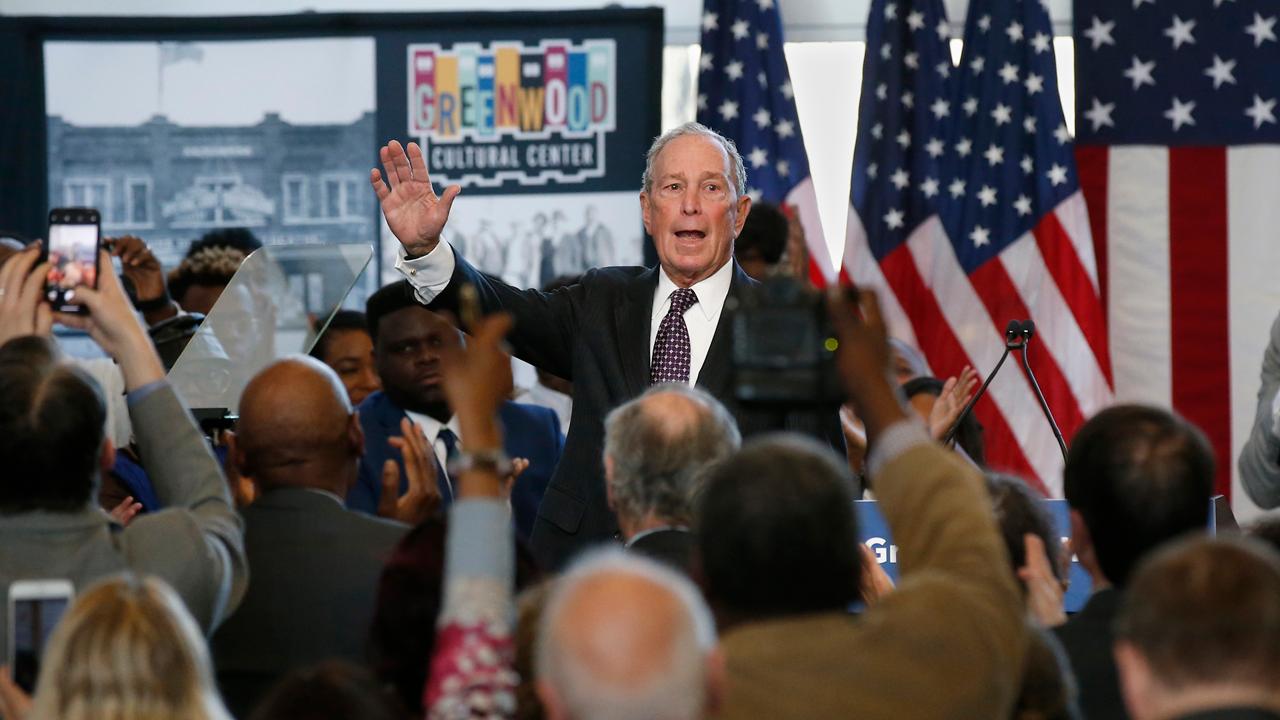Bloomberg, in 2008, blamed end of ‘redlining’ for triggering financial crisis
The resurfaced comments are the latest instance of past remarks that Bloomberg has made that some have criticized as racially insensitive
Democratic presidential candidate Michael Bloomberg came under fire for the second time this week after audio surfaced of the then-New York City mayor, at the height of the financial crisis in 2008, suggesting that ending a discriminatory policy known as “redlining” was to blame for the economic meltdown.
Redlining refers to the practice of cutting certain neighborhoods, and potential homebuyers, off from mortgage lending opportunities — often discriminating against predominantly black neighborhoods.
“It probably all started back when there was a lot of pressure on banks to make loans to everyone,” Bloomberg said at a forum hosted by Georgetown University in September 2008. “Redlining, if you remember was the term, where banks took whole neighborhoods and said: ‘People in these neighborhoods are poor, they’re not going to be able to pay off their mortgages, tell your salesman don’t go into those areas.’”
He continued: “And then Congress got involved, local elected officials as well, and said, ‘Oh, that’s not fair, these people should be able to get credit.’ And once you started pushing in that direction, banks started making more and more loans where the credit of the person buying the house wasn’t as good as you would like.”
The Associated Press first reported the news.
During the worst economic recession since the Great Depression, unemployment surged past 10 percent, and trillions of dollars in market value was wiped out. Tens of thousands of Americans lost their homes to foreclosure, including more than 800,000 in 2008 alone, according to RealtyTrac data.
The U.S. government responded to the collapse by pumping in $1.5 trillion in stimulus over a five-year period to help keep leading financial institutions afloat and maintain liquidity in financial markets. The Federal Reserve slashed interest rates to nearly zero to encourage spending and went on a bond-buying spree that more than quadrupled the size of its balance sheet.
"Mike’s saying that something bad - the financial crisis - followed something good, which is the fight against redlining he was part of as Mayor,” Bloomberg’s campaign spokesperson Stu Loeser said in a statement.
BLOOMBERG EMERGES AS SERIOUS CONTENDER IN 2020: HOW WILL HIS MEDIA ORGANIZATION COVER HIM?
Bloomberg isn’t alone in blaming redlining for the crisis: Republicans often cite Clinton-era reforms to the Community Reinvestment Act to prevent discrimination against low- and middle-income homebuyers, something that disproportionately affects minority communities as the reason for the mortgage bubble burst,
President Trump’s chief economic adviser Larry Kudlow and Heritage Foundation economist Stephen Moore, in a 2016 op-ed for CNBC, made a similar argument, suggesting that efforts by Bill Clinton to stop discrimination in housing loans, in particular the Community Reinvestment Act, planted “the seeds of the mortgage meltdown.”
BLOOMBERG TO CAPITALIZE ON IOWA CAUCUS FIASCO BY DOUBLING AD SPENDING
“Banks were effectively rewarded for throwing out sound underwriting standards and writing loans to those who were at high risk of defaulting,” they wrote. “If banks didn't comply with these rules, regulators reined in their ability to expand lending and deposits.”
Democrats contend that the effective neutering of the Glass-Steagall Act in 1999, which allowed banks to engage in previously forbidden commercial activities, like insurance and investment banking, played a major role in the crash.
“It was the lack of sufficient government oversight in key areas — including consumer protection, private label mortgage securitization, bank capitalization, and financial markets — that transformed a housing bubble into a global financial crisis,” the Center for American Progress wrote in a 2017 article.
TRUMP WOULD RATHER RUN AGAINST BLOOMBERG THAN SANDERS IN 2020
The resurfaced comments are the latest instance of past remarks that Bloomberg has made that some have criticized as racially insensitive.
On Tuesday, Bloomberg found himself the target of new ire after progressive podcast host Benjamin Dixon uncovered audio of a 2015 speech in which he defended “stop and frisk,” the policing strategy that he supported as mayor. In the clip, Bloomberg acknowledged the strategy disproportionately targeted minority "kids" whom cops must throw "up against the wall" to disarm.
“Ninety-five percent of murders -- murderers and murder victims -- fit one M.O.,” he said. “You can just take a description, Xerox it, and pass it out to all the cops. They are male, minorities, 16 to 25. That’s true in New York, that’s true in virtually every city … And that’s where the real crime is.”
Bloomberg has since apologized for his support of the policy, but refused to directly apologize for the 2015 comments, the AP reported. He insisted the audio doesn’t “reflect how I led the most diverse city in the nation.”
“I apologized for the practice and the pain that it caused,” he said Wednesday. “It was five years ago. And, you know, it’s just not the way that I think, and it doesn’t reflect what I do every day.”
Bloomberg is currently in midst of a two-day tour of the South, powered by his billions, as he courts black voters critical to any Democrat’s chance of winning the nomination. He’s painting himself as the best candidate to oust Trump in November.




















